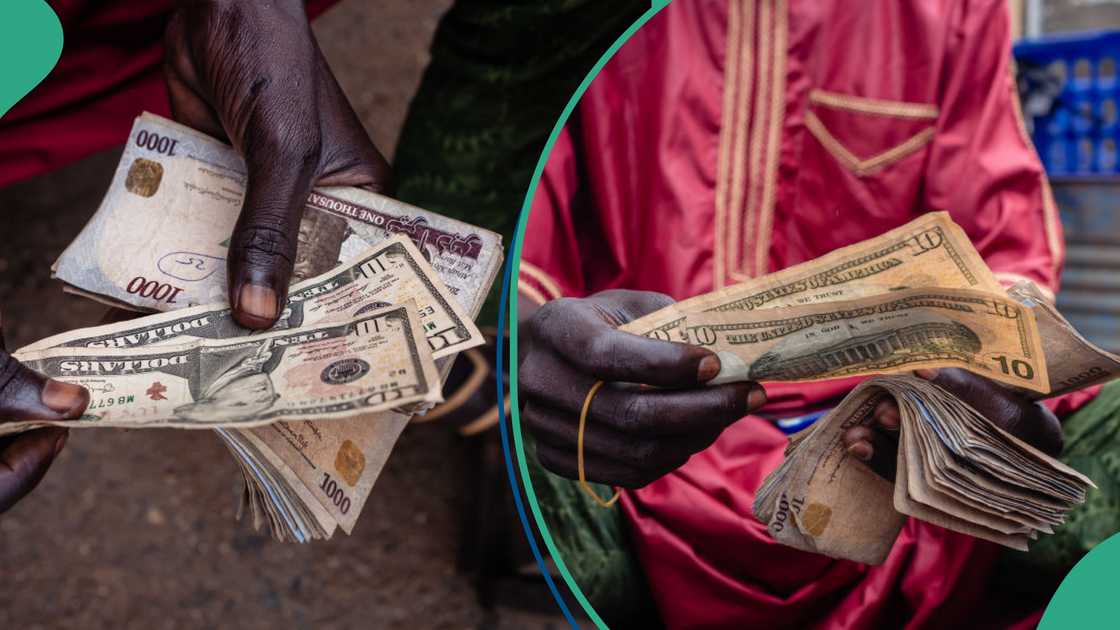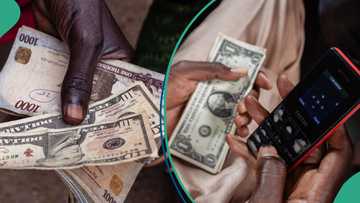Naira Crashes Above N1,600 Against US Dollar in Official, Black Markets
- The value of Nigerian currency has crashed above N1,600 in the official and unofficial foreign exchange markets
- Latest data shows that the naira depreciated by 0.77% in the official market but was stable in the black market
- The free fall of the naira will continue to be a big concern for the CBN despite recent intervention in the forex markets
Legit.ng journalist Dave Ibemere has over a decade of business journalism experience with in-depth knowledge of the Nigerian economy, stocks, and general market trends.
The Nigerian naira has depreciated against the United States dollar in the official foreign exchange market despite the Central Bank’s recent intervention, and it is now above N1,600 a dollar.
Data from FMDQ securities showed that the naira closed at N1,606/$1 in the Nigerian Autonomous Foreign Exchange Market (NAFEM) on Wednesday, August 28, 2024.

Source: Getty Images
Wednesday’s exchange rate is 0.86% or N28.34 depreciation compared to last Tuesday’s closing price of N1,594.27/$1.
The latest fall of the naira comes as the Central Bank of Nigeria (CBN )struggles to tackle the high seasonal demand for forex by Nigerians and companies.
There was a slight improvement as the value of FX transactions rose by 5.1% or $4 million to $160.94 million from the $156.94 million recorded in the previous trading session.
Naira to pound, euro new exchange rate
The naira declined against the pound sterling in the spot market at midweek by N11.87, to quote at N2,116.69/£1 versus Tuesday’s closing rate of N2,104.82/£1.
It also declined against the euro by N5.46 to settle at N1,782.62/€1 versus the previous day’s N1,777.16/€1.
Similarly, the Nigerian currency declined in the unofficial black market.

Read also
“There is a need”: Expert speaks as banks, traders sell dollar at new exchange rate as naira weakens
Traders told Legit.ng that the naira remained unchanged against the US dollar at N1,615/$1.
Report predicts how Nigeria will get dollars
Legit.ng earlier reported that a recent quarterly statistical bulletin from the Central Bank of Nigeria (CBN) highlighted that foreign exchange (FX) consumers consumed more dollars in the three months ending in December 2023 than they did in the previous quarter.
It said the inflows would likely come from World Bank budget finance, NNPC-related flows, and Eurobond issuance.
PAY ATTENTION: Unlock the best of Legit.ng on Pinterest! Subscribe now and get your daily inspiration!
Source: Legit.ng



